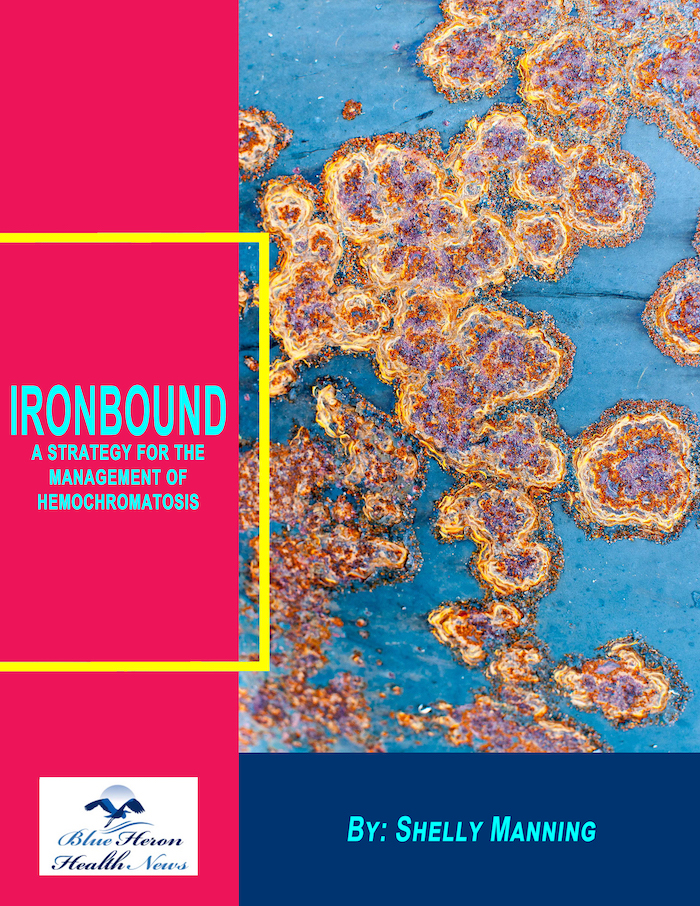
Ironbound™ A Strategy For The Management Of Hemochromatosis by Shelly Manning if you are suffering from the problems caused by the health condition of HCT due to excess amount of iron in your body then instead of using harmful chemical-based drugs and medications you are recommended to follow the program offered in Ironbound Shelly Manning, an eBook. In this eBook, she has discussed 5 superfoods and other methods to help you in reducing the level of iron in your body in a natural manner. Many people are benefited from this program after following it consistently.
How does pregnancy influence the risk of iron deficiency anemia?
Pregnancy significantly influences the risk of iron deficiency anemia due to increased iron demands, changes in blood volume, and other physiological factors. Here’s a detailed explanation of how pregnancy impacts iron levels and the risk of anemia:
1. Increased Iron Requirements
Fetal Development
- Iron for the Fetus: The growing fetus requires iron for developing red blood cells, muscle cells, and overall growth. Iron is essential for brain development and the formation of hemoglobin.
- Placental Transfer: The placenta actively transports iron from the mother to the fetus, prioritizing fetal needs even if the mother’s iron levels are low.
Maternal Blood Volume
- Expanded Blood Volume: During pregnancy, a woman’s blood volume increases by about 50% to support the growing fetus and placenta. This requires a significant amount of additional iron to produce more hemoglobin.
- Dilutional Anemia: The increase in plasma volume is often greater than the increase in red blood cell mass, leading to dilutional anemia, where hemoglobin concentration appears lower even though the total red blood cell mass increases.
2. Iron Losses
Labor and Delivery
- Blood Loss: Blood loss during childbirth can be significant. Average blood loss is around 500 ml for a vaginal delivery and up to 1,000 ml or more for a cesarean section. This loss includes a substantial amount of iron.
- Postpartum Recovery: After delivery, the body needs additional iron to recover from blood loss and support lactation if the mother chooses to breastfeed.
3. Diet and Absorption
Dietary Intake
- Increased Needs: The recommended daily iron intake during pregnancy is higher (27 mg per day) compared to non-pregnant women (18 mg per day). Many women may not meet these requirements through diet alone, especially if their diet lacks iron-rich foods.
- Cravings and Aversions: Pregnancy can alter eating habits, leading to cravings or aversions that might affect iron intake.
Absorption
- Enhanced Absorption: The body adapts to increased iron needs during pregnancy by enhancing iron absorption from the gut. However, this may not be sufficient if dietary iron intake is low.
- Inhibitors and Enhancers: The presence of iron absorption inhibitors (like calcium, phytates, and polyphenols) and enhancers (like vitamin C) in the diet also plays a crucial role.
4. Pre-existing Iron Stores
Pre-pregnancy Iron Status
- Baseline Levels: Women who enter pregnancy with low iron stores or existing iron deficiency are at a higher risk of developing iron deficiency anemia.
- Menstrual Losses: Pre-pregnancy menstrual blood loss can deplete iron stores, making it crucial to have adequate iron levels before conception.
5. Risk Factors
Multiple Pregnancies
- Short Intervals: Women with closely spaced pregnancies may not have sufficient time to replenish their iron stores between pregnancies.
- Multiple Gestations: Carrying twins or multiples increases iron requirements even further.
Health Conditions
- Pre-existing Anemia: Women with chronic conditions or pre-existing anemia are more vulnerable.
- Dietary Restrictions: Vegetarians and vegans, or women with dietary restrictions, need careful planning to ensure adequate iron intake.
6. Consequences of Iron Deficiency Anemia in Pregnancy
Maternal Health
- Fatigue and Weakness: Anemia can cause significant fatigue, weakness, and reduced ability to perform daily activities.
- Increased Risk of Infection: Iron deficiency impairs immune function, increasing susceptibility to infections.
Pregnancy Complications
- Preterm Birth: Iron deficiency anemia is associated with a higher risk of preterm birth and low birth weight.
- Preeclampsia: There is some evidence linking iron deficiency to an increased risk of preeclampsia.
Fetal and Neonatal Health
- Developmental Delays: Severe anemia can affect fetal growth and development, potentially leading to developmental delays.
- Neonatal Anemia: Babies born to anemic mothers may have lower iron stores and be at risk for anemia.
7. Management and Prevention
Prenatal Care
- Iron Supplements: Prenatal vitamins typically contain iron. Additional iron supplements may be prescribed if blood tests show low levels.
- Dietary Recommendations: Emphasizing iron-rich foods (red meat, poultry, fish, legumes, fortified cereals) and iron absorption enhancers (vitamin C-rich foods).
Monitoring
- Regular Screening: Blood tests to monitor hemoglobin and ferritin levels throughout pregnancy help in early detection and management of anemia.
- Tailored Interventions: Adjusting iron supplementation based on individual needs and tolerability.
Conclusion
Pregnancy significantly increases the risk of iron deficiency anemia due to heightened iron requirements for fetal development, expanded maternal blood volume, and potential blood losses during delivery. Proper prenatal care, including adequate dietary iron intake and supplementation, regular monitoring, and addressing individual risk factors, is crucial for preventing and managing iron deficiency anemia in pregnant women. Ensuring sufficient iron levels supports both maternal health and optimal fetal development.
Ironbound™ A Strategy For The Management Of Hemochromatosis by Shelly Manning if you are suffering from the problems caused by the health condition of HCT due to excess amount of iron in your body then instead of using harmful chemical-based drugs and medications you are recommended to follow the program offered in Ironbound Shelly Manning, an eBook. In this eBook, she has discussed 5 superfoods and other methods to help you in reducing the level of iron in your body in a natural manner. Many people are benefited from this program after following it consistently.